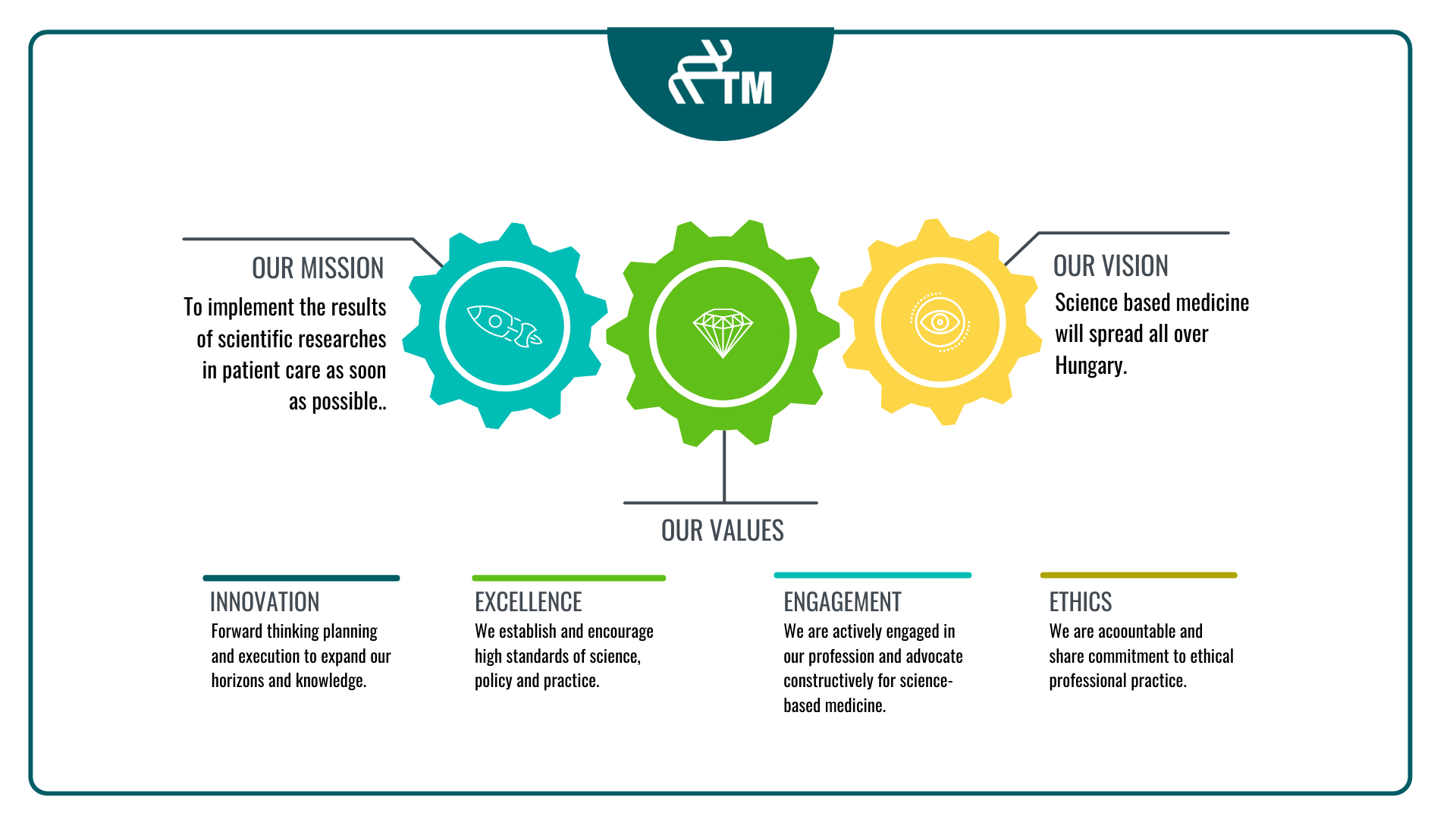In 2016, the University of Pécs provided an opportunity to launch our training and research support model. By 2020, together with the Szent-György University Teaching Hospital of Fejér County in Székesfehérvár and the Heim Pál National Pediatric Institute, there were already three Translational Medicine Centers in Hungary. In the past five years, 49 Ph.D. students and residents have participated in our program. More than 300 publications have been published through scientific research and translational patient care initiated and supported by the Center. The results have made it possible to develop and supplement several treatment guidelines and immediately apply scientific results in patient care. The Center for Translational Medicine began its operation on June 1, 2021 at Semmelweis University.
Mission, vision & goals
The goal of the Centre for Translational Medicine is to return the results of research to patient care as soon as possible.
Translational Medicine improves health prevention, speeds up the diagnosis of diseases, improves the quality of patient care, and, last but not least, makes health care more cost-effective.
The Centre’s main activities include the launch and operation of the Translational Medicine Ph.D. program at the university and the interdisciplinary support of clinical researches initiated by investigators.
Hybrid Ph.D. / Resident program
The Hybrid Ph.D. / Resident Program at the Center for Translational Medicine provides students with the opportunity to perform patient care and academic activity simultaneously. In the framework of the training, they will acquire clinical research methodologies using the “learning by doing” method through independent scientific projects. They can join workgroups, participate in meta-analyses, studies related to different patient registries, clinical trials and clinical work. The program helps them with a series of courses in their scientific work. They can master various research and data collection methodologies and interpret and process relevant materials, thus working more efficiently and professionally on their projects.
We believe that continuous monitoring is essential. Therefore, the program participants present their results and the current status of the projects every three months. In addition, they receive valuable, immediate feedback from their mentors, fellow students, and the academic staff of the Centre on the feasibility of the project, the communication skills of the speaker, and the ability to debate.
Students will also be involved in other students’ projects during the program; thus, they will have 1-2 first author and several co-author publications at the end of the program. These publications can serve as the basis of their Ph.D. thesis.
Interdisciplinary research support
Our Centre has begun building an interdisciplinary research support team to support researchers and Ph.D. students in many areas. The Scientific Methodology Group provides a basic professional background in developing Ph.D. training, the design, and implementation of patient registries, meta-analyses, and clinical trials. The IT Group offers support in the development of multicentric registries and clinical trials. The Biostatistics Group helps in the planning of data collection and the analysis of incoming data. Important participants in the Data and Patient Coordination Group are clinical research administrators who provide valuable support in patient inclusion, data collection, and upload; quality monitors, who develop and control data collection and upload processes to ensure data quality and an ethics coordinator who initiates and coordinates the authorization of all clinical research. Finally, the Communication Group helps disseminate information to healthcare actors to increase prevention and improve the quality and cost-effectiveness of patient care.
Further aims of the Centre are to collaborate with other university units, for example, to complement research with health economics analyzes or submit and win Research Development and Innovation funds.